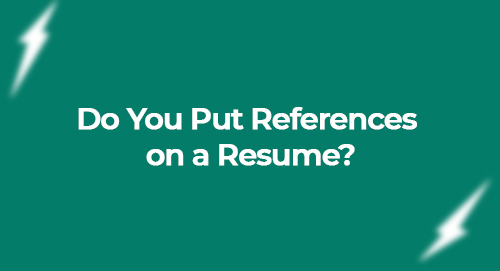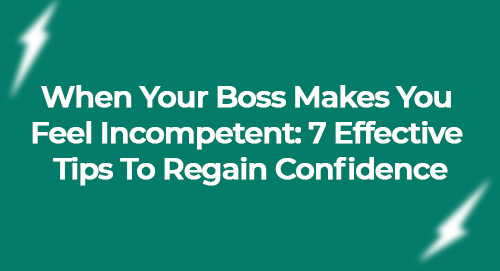Entry-Level Software Engineer Resume: How to Create a Standout CV
A resume is a formal document that showcases the personal information, work experience, educational background, and career achievements of a candidate applying for the job. Starting your career as a software engineer can be an exciting yet challenging journey. One of the first steps in landing that dream job is creating a standout resume that showcases your skills, education, and potential.
Software Engineer Resume Example | Senior Software Engineer Example
This guide will help you understand the role of a software engineer and walk you through crafting an entry-level software engineer resume that gets noticed.
Review Our Extensive List of Free Job Winning Resume Examples For 2024
Understanding the Role of an Entry-Level Software Engineer
It is essential to know what the role of a entry-level software engineer entails before one starts writing a resume. Generally, you’ll be involved in developing, testing, and maintaining software applications, working under the guidance of senior engineers.
Key Responsibilities
- Writing and testing code in various programming languages.
- Collaborating with team members to design software solutions.
- Debugging and fixing issues in existing software.
- Participating in code reviews and improving code quality.
Structuring Your Entry-Level Software Engineer Resume
The structure of your resume is vital, especially when you have limited professional experience. It should be clear, concise, and easy to navigate, emphasizing your strengths and potential.
Choosing the Best Format:
- Reverse Chronological: The most common format, ideal if you have relevant internships or part-time experience.
- Functional: Focuses on skills rather than experience, suitable if your experience is limited.
- Combination: Merges both formats, allowing you to showcase your skills while also highlighting any experience you have.
Writing a Compelling Objective Statement
An objective statement is your chance to make a strong first impression. This short paragraph should highlight your career goals and what you bring to the table as an entry-level candidate.
What to Include:
- Your current education or recent graduation.
- Relevant skills or technologies you’re proficient in.
- Your career aspirations or the type of role you’re seeking.
Example: “Recent Computer Science graduate with a strong foundation in Python, Java, and web development. Seeking an entry-level software engineer position where I can leverage my coding skills and passion for problem-solving to contribute to innovative projects.”
Highlighting Your Technical Skills
As a software engineer, your technical skills are your most valuable asset. Clearly listing these on your resume allows potential employers to quickly see what you can bring to their team.
Core Technical Skills:
- Programming Languages: Python, Java, C++, JavaScript.
- Web Development: HTML, CSS, React, Angular.
- Databases: MySQL, MongoDB, PostgreSQL.
- Tools and Frameworks: Git, Docker, Jenkins.
- Operating Systems: Linux, Windows, macOS.
Presentation Tips:
- Use bullet points to list your skills.
- Group related skills together for better readability.
- Consider including your proficiency level (e.g., Beginner, Intermediate, Advanced).
Showcasing Your Educational Background
For entry-level candidates, education is often the most substantial section of the resume. It’s essential to present this information clearly.
Relevant Degrees:
- Bachelor’s degree in Computer Science, Software Engineering, or a related field.
- Consider mentioning your GPA if it’s particularly strong (e.g., above 3.5/4.0).
Example: Bachelor of Science in Computer Science
University of London, London, UK | Graduated: May 2023
- Relevant Coursework: Data Structures, Algorithms, Object-Oriented Programming, Database Systems.
Including Relevant Coursework and Academic Projects
If you lack professional experience, academic projects, and coursework can fill that gap. They demonstrate your practical skills and understanding of software engineering principles.
How to Present Academic Experience:
- List key courses that are relevant to the role.
- Describe projects briefly, focusing on your role and the outcome.
Example: E-commerce Web Application Project
- Developed a full-stack e-commerce application using React and Node.js.
- Implemented a secure payment gateway and user authentication system.
- Achieved a user-friendly design with responsive web development techniques.
Detailing Internships and Work Experience
If you’ve had any internships, part-time jobs, or relevant work experience, this section should highlight them. Even if the experience is not directly related to software engineering, focus on transferable skills.
How to Present Internship Experience:
- Include the company name, your job title, and the dates you worked.
- Briefly describe your responsibilities and any significant achievements.
Example: Software Development Intern | XYZ Tech Solutions
London, UK | June 2022 – August 2022
- Assisted in developing a web application using JavaScript and Node.js.
- Participated in daily stand-ups and contributed to sprint planning.
- Improved the application’s performance by optimizing SQL queries, reducing load times by 20%.
Emphasising Personal Projects and Open Source Contributions
Personal projects and contributions to open source are excellent ways to demonstrate your initiative and passion for software engineering. These projects show that you are continually learning and applying your skills.
Why Personal Projects Matter:
- They provide real-world examples of your coding abilities.
- They demonstrate your problem-solving skills and creativity.
Example: Personal Blog Platform
- Developed a personal blogging platform using Django and Bootstrap.
- Implemented features such as user registration, commenting, and content management.
- Deployed the application on Heroku and linked it to a custom domain.
Incorporating Soft Skills and Professional Attributes
In addition to technical skills, employers value soft skills such as communication, teamwork, and problem-solving. These should be included in your software engineer resume, especially in your experience and project descriptions.
Essential Soft Skills:
- Communication: Ability to articulate ideas clearly and work well with a team.
- Teamwork: Collaborating effectively with other developers and stakeholders.
- Adaptability: Quickly learning new technologies and adapting to changes.
- Problem-solving: Applying logical thinking to troubleshoot and solve coding challenges.
Creating a Portfolio or GitHub Repository
A portfolio or GitHub repository is a great way to showcase your work. It allows employers to see your code quality and the types of projects you’ve worked on.
What to Include:
- Links to your GitHub profile, personal website, or portfolio.
- Highlighted projects that demonstrate your skills.
Example: “Check out my GitHub portfolio xyz.com/yourusername – featuring projects in Python, JavaScript, and more.”
customizing Your Resume for Different Job Applications
Customizing your resume for each application is crucial, especially for entry-level positions. Employers want to see that you’ve taken the time to understand their specific needs.
How to Customise:
- Adjust your objective statement to align with the specific role.
- Highlight the skills and experiences most relevant to the job description.
- Use keywords from the job posting to ensure your resume resonates with recruiters.
Optimizing Your Resume for Applicant Tracking Systems (ATS)
Many companies use ATS to filter resumes before they even reach a human recruiter. Ensuring your resume is ATS-friendly can increase your chances of getting noticed.
Review Software Developer Resume Example
Tips for ATS Optimisation:
- Use standard fonts and simple formatting.
- Include relevant keywords from the job description.
- Avoid using images, charts, or fancy graphics that ATS might not read correctly.
Writing a Strong Cover Letter to Accompany Your Resume
A well-written cover letter can complement your resume and provide additional context for your application.
What to Include:
- A brief introduction, mentioning the role you’re applying for.
- Highlights from your resume that align with the job requirements.
- A closing statement expressing your enthusiasm and inviting the employer to contact you.
Common Mistakes to Avoid in Your Entry-Level Software Engineer Resume
Even small mistakes on your resume can hurt your chances of getting an interview. Make sure to avoid these common errors:
Top Errors:
- Typos and grammatical mistakes.
- Overloading your resume with technical jargon.
- Including irrelevant information or experiences.
Proofreading Tips:
- Use tools like Grammarly to check for errors.
- Have someone else review your resume.
- Read your resume aloud to catch awkward phrasing.
Conclusion
Crafting a strong entry-level software engineer resume requires careful attention to detail and a focus on showcasing your skills and potential. Remember to customize your resume for each job application and keep it updated as you gain more experience.












